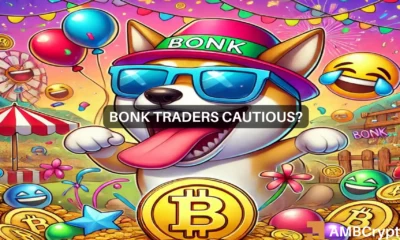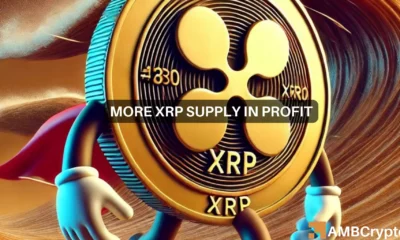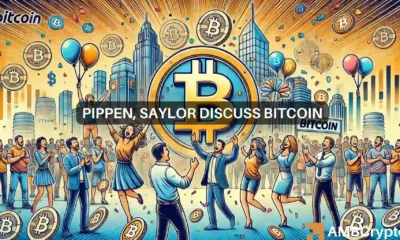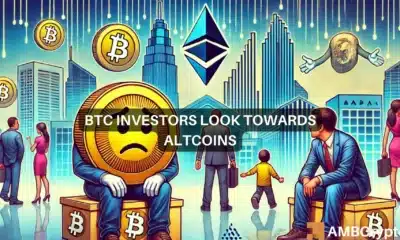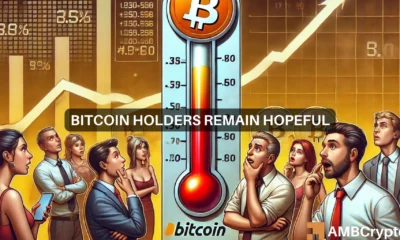Mmogah: Funding video games by turning them into Bitcoin miners

Turns out that making a profitable video game is more difficult these days thanks to the increased work required to get up to modern graphics standards. Plus, the wages of the people involved, and the cost of the hardware and software, not to mention things like marketing, testing, getting marketplace approval, paying reviewers and so forth. Making video games is a costly endeavor, but if the movie business was able to survive modern file sharing and torrenting, shouldn’t video games find a new way to fund their games?
Turning Each Game into a Bitcoin Miner
When you buy a game, instead of agreeing to pay a subscription fee, you allow a portion of your computer’s or console’s CPU power to be dedicated to Bitcoin mining. We already know that some nefarious games try to add secret mining software into freemium games, but what if developers came out and asked people if they wanted it?
The miner wouldn’t dominate the CPU power, perhaps only cranking up a bit will leave the game on pause for an extended time. In this scenario, if it helps people avoid subscription fees and doesn’t overly tax their computer, you have to admit that some people would be okay with this.
The game is not going to make epic amounts of money for the developer in the short term but remember that people put hundreds of hours into games and they sometimes do it over decades. What starts out as a few pennies per week could be thousands per week if they have enough active players.
Funding Through Advertising
Many modern games do this sort of thing, especially Freemium games. For example, the mobile version of Fallout Shelter allows you to watch a video in return for a few in-game rewards. Games like Fallout Shelter are great for this sort of thing because it actively gives people a reason to want to watch adverts. Panda Pop and Animation Throwdown also do a similar thing with the mobile version of their games.
The other way to fund through advertising is having adverts pop up, often between rounds or matches in games. This is an incredibly annoying way to monetize games and is only one step above paid loot boxes. In some cases, if you add in the mechanics with tact and care, then optional adverts are a sustainable method for funding game developers because they do not detract from the game itself.
Funding Through Microtransactions
Even older games like Path of Exile are still able to make money with microtransactions, and that game came out in 2013. It has been extensively proven that microtransactions can fund a game for a very long time, to the point where even third-party sellers are able to sell things like PoE currency on top of the things that the game is already selling to players.
Most people’s issues with this sort of thing is that they are exploited by greedy companies to make stupid amounts of money. Take the Assassin Creed games, especially Odyssey. The game is one massive grind and is almost impossible to progress through unless you pay for micro-transactions to make the game bearable to play.
What is worse is that they set you off with a quick pace and everything is going fine, and then they put on the brakes and tell you to grind for hundreds of hours if you want to keep progressing through the game. Funding through micro-transactions is certainly possible, but it has become very ugly.
Funding Through Crowdfunding
Believe it or not, this is not a sustainable business model. We have seen a lot of crash-and-burn scenarios with crowdfunded ideas. Yet, we are forced to add it to this list for the small handful of crowdfunded games that actually churned out a reasonably good game. Games like Undertale, Shovel Knight, and Divinity: Original Sin 2 were at least partially funded by crowdfunding, and they turned out pretty fine.
Still, crowdfunding is not a sustainable business model for developers. This is especially true when you consider that it is the people who are best at crowdfunding who get the big money, whereas the truly passionate developers (with no social or marketing skills) are left without a penny.
Grants and various game funds are also not sustainable ways to fund a development company. They too are dependent on a developer’s people skills or marketing skills. In some cases, the fund isn’t available unless the developer is bio-ethnically a certain minority race or trans-gender person.
Funding Through a Game Alpha
We have seen more success stories using this method than with crowdfunding and such, but even this method is smothered with leeches and people who are simply trying to make a quick buck at the expense of honest paying customers.
The money-grubbing scammers will release a partially finished mess with a lot of promises, and then hoodwink people into buying it with the promises it will get better. They say they will take your help and comments on board and together we will all create the game we all want to play. Then, they make a few changes here and there as time goes on, all the time trying to raise hype and interest, until they decide to quit, leaving paying customers with a game that has all the entertainment value of a slice of cheese glued to a wall.
The sad part is that there are a few games that have used alphas to create very good and very complex games that people actually want to play. They have taken criticism and suggestions on board to create a game that works well. They have released it from the alpha and it has become a pretty good game that couldn’t have existed if people hadn’t kept buying the alpha version.
Funding Through Sponsored Endorsements In-Game
Endorsements in movies and TV shows are a big fundraiser. All you have to do is feature the product in the shot, or have the character consume or use the product during the run time. These types of sponsored endorsements allow movies to fail because the people involved have already been paid ahead of time by on-screen promotions. It also means that when movies and TV shows are torrented and shared, it doesn’t bother the creators that much because their content is being seen, so their promotional sponsors are even happier.
This sort of in-game promotion is not as common, but the Monster Energy promotions in “Death Stranding” were about as overt as in-game promotions have ever been. When the guy drank one, he may have well as smiled into the camera and given a wink. Fortnite is another game that has blatantly paid adverts in its game, promoting everything from celebrities to Air Jordan sneakers.
Paying for video game development in this way is not really sustainable for video games. It may offer a bit of extra money to help development, but it isn’t like in movies or TV shows. At least in TV and movies, you can sell guaranteed minutes. Whereas in a game there are no guarantees if the player will ever even see the advert, and there are no ways to check to see if an advert is being viewed in a good or bad light.
For example, seeing a young kid eat a cereal brand in a TV show is pretty easy to control and easy to sell, but you have no idea if your poster advert in a game will have a dead body in front of it or blood splattered up it, or if the player will ever even look in its direction before the end of the game. With only a few exceptions, in-game advertising promotions/endorsements will not help fund future video game development.
Disclaimer: This is a paid post and should not be treated as news/advice.


